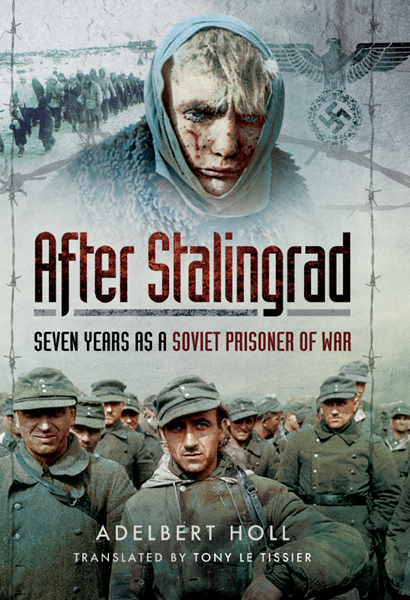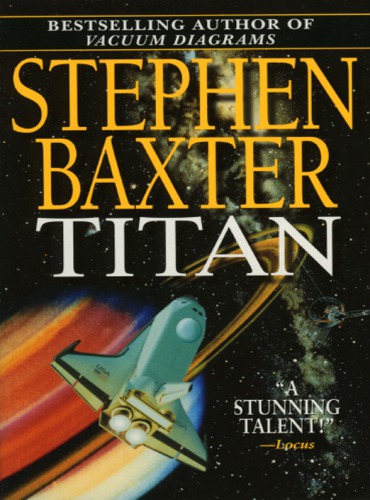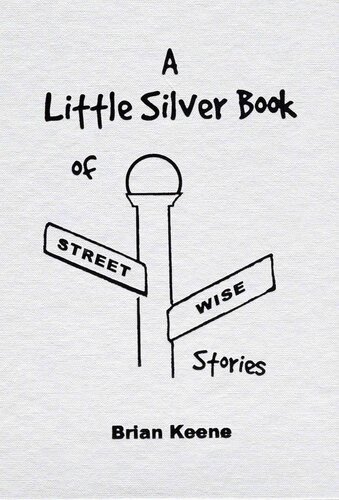oleebook.com
After Stalingrad: Seven Years as a Soviet Prisoner of War de Holl, Adelbert
de Holl, Adelbert - Género: English
Sinopsis
The Soviets treated German prisoners as slave labourers, working them exhaustively, in often appalling conditions. The prisoners could only struggled to survive, to support each other, and hope against hope to return home.
Libros Recomendados - Relacionados
Reseñas Varias sobre este libro
Im still on the fence after reading this memoir. On one hand, its an invaluable historical source of research which offers an intimate look into the Soviet Gulags and the treatment of the German POWs. On the other hand, un many other German POWs memoirs which I previously read, its written in an extremely prejudiced manner and I soon grew annoyed by the authors disdainful attitude towards, well, basically everyone around who is not a fellow German. Everyone is a subhuman, every other doctor is certainly Jewish (how would he know that Im wondering?), every Russian is an uncultured animal who doesnt know how to use a fork, and every woman (again, who is not German) has an ugly painted face and looks extremely unattractive in the uniform. I soon began rolling my eyes. Oh, just to be fair: he does actually mock his own compatriots as well - the ones who joined the League of German Officers and were all traitors and just generally despicable human beings unworthy of being called Germans in his eyes.
That aside (I soon realized that he was most definitely a hardcore nationalist so I just decided to disregard all of his berating comments and concentrated on extracting purely historical facts) the memoir is very accurate when it comes to the inner workings of the POW camps and Siberian Gulags as well, and offers tons of interesting information on the working conditions, relationships between the guards and the POWs, medical treatments, extracurricular activities that were permitted, and many more. If you are interested in which types of jobs German POWs were given, how much they were paid, what they ate, where they lived and slept, and what items they were allowed to purchase - this book is definitely for you. I did sympathize with the author and his comrades due to the inhumane conditions (constant hunger, subzero temperatures, and back-breaking work) and treatment they were subjected to, but the book would have been so much better if he wrote it in a more objective way (read Guy Sajer and youll understand what I mean under objective) but its still a good research source if youre interested in the subject.memoir nazi-germany non-fiction ...more8 s Jostein Moen43 1 follower
This book is not written by a good author, and the author is not a very likable person. Still, his tale of hardship, suffering and survival gripped me strongly. It is full of suspense and surprises. The skinny, undernourished Germans actually went on hunger strike and won acceptance for some of their demands. The author shows a striking lack of self-reflection and sees himself as a soldier and not as a war criminal. His story ends abruptly when he crosses the border into West Germany. These are his choices and we might wish for something different or more, but I enjoyed this book from beginning to end.6 s Julio8 2
The author is not a writer: characters come and go, settings are badly described, the plot is choppy at best, important details come out of the blue... and furthermore, the author is not a likable character at all. So why read this book?
The tension between his arrogance and stubbornness on the one hand and my compulsion to empathize with him because of what he was going through created a very interesting dynamic. It kept me going back and forth.
Added to that there is yet another dynamic, the understanding that we as readers have that as terrible as Captain Holl's experiences are, they are but small mirror to what his own government had been doing to Jews, gays, gypsies and dissidents but at a much, much larger scale.
For me, those two clashing contrasts: trying to empathize with an unlikable character, and the enormous weight of the holocaust in the backdrop, made for a very interesting read.4 s Mickey Mantle142 3
I found this book fascinating. The author, under the guise of military honor, sounds he was either a Nazi or bought the Nazi line hook, line and sinker.
I get it. German POWs were used as slave labor.
It strikes me as absurd that the author could have known little or nothing about German atrocities against Soviet troops and civilians.
There is an unsettling tone to this book. He basically describes the Russians as sub human. Wonder where he heard that before?
By the way, the Germans invaded Russia, not the other way around.
Nobody who has read anything about the Gulag should be surprised at much in the book.
It ain't Hogan's Heroes.4 s David Christian106
Amazing read about German prisoners of war in Russia after WWII. The hardship, hunger, suffering Mr Holl and his fellow soldiers went through was amazing and horrifying . Extreme cold and hunger were always a constant but their will to live and get back to Germany was amazing. They were simple soldiers who fought for their country in Stalingrad an absolute brutal battle. His experience in the Russian POW camps was a powerful read. 4 s Nikolas7 45
Whining ex-Nazi author writes about his experience in a Russian camp in which he was treated much better than the Jews were treated in the German camps he was fighting for- all the while complaining about sub-human Slavs and asiatics. Very cute how many times he says in this book that his release from camp is dependent on the Americans and French coming to his rescue. I find it hard to offer much sympathy. 3 s Don Williams5
Incredible Cruelty - Incredible Bravery
One remembers that early in the Second World War Germany made a nonaggeration pact with Russia while fighting the battles of western Europe, then violated the pact in 1942. It is certainly understandable why Russia would hold it's German POW's responsible for the wartime damage. However, one assumes that Russia would have kept labor force in good working condition rather than attempting to work the POW's to death. The number of soldiers of all countries which Russia held following WWII is unknown all that is known is that the Russian's kept all which they could, for as long as they could. After Stalingrad is the story of a small group of German infantry captured in 1943 and kept in slavery until 1950. The author is the Captain of the group who dedicated himself to keeping his command together and alive. Knowing the history of the two countries during and after WWII, I had no cause to carry, no money in the game. I did however, find the history very helpful to my understanding of Russia as a nation.2 s Glioris17 2
Excellent book. Mainly because of the author, which as a prisoner of war for 7 years, descrives his experiences of captivity and also his honest opinion about the Soviet Regime and the Russians, honestly and without the filter of "correctivness".kindle-book2 s Rex Schimmer1 review
The real story of the surviving German soldiers after Stalingrad
100,000 German soldiers were marched out of Stalingrad after their defeat, less than 10,000 ever returned to their homeland. This is the story of why.2 s Kevin Downer156
Payback is a bitch Russian style for german troops captured at Stalingrad. Interesting POV from a german officer's perspective. 2 s Ian80 2
Plainly written account of the authors' time as a Soviet POW. The book starts with the young Hauptmann's surrender on the outskirts of Stalingrad and the ensuing death marches into captivity.
This should be familiar territory if you have previously read about the Soviet Gulag system.
Staggering that anyone was able to survive the brutal regime of forced labour, starvation and deprivation, particularly considering the Germans were at the very bottom of the camp pecking order. A lot of the account reads an extended list of the various camps that the author is rotated between and the job brigades that he worked with.
There is also considerable detail on the political activities of the camp officials and their attempts to convert the German officers into anti-Fascists, who were promised improved conditions in exchange for propaganda activities. Holl was fiercely resistant to these attempts at coercion and remained steadfast in his political views, to his own considerable detriment. In 1949, following the failure of the Russians to release the remaining POWs according to international agreement, Holl refused to work and was sentenced to eight years hard labour.
Holl was eventually released in 1950, one of the few German soldiers to return from years of slavery under Communism.non-fiction ww21 Dan Kurt4
Amazing book, simply amazing.
The book matches what I learned from a survivor of imprisonment by the Soviets from early 1945 until 1950 as a POW. He was an university student when drafted in 1943. Given his intelligence and education he was trained as an officer but as the Eastern front collapsed he found himself fighting for his life in a collapsing pocket with the result being his capture during a scene of pure chaos with the Russians stealing his wrist watch along with all of his valuables.
He worked with me for two years as an electrical engineer but also was a master mechanic as a hobby. He was married to the daughter of a physicist who during the war worked on nuclear energy at Hanford. He had a doctorate from a German university and I knew him in the mid 70s. His stories of the war and being a prisoner were astounding as is the narrative in the book. My friend died from a stroke a year or so after I moved to a new job. I have always believed his health had been broken by his years in Siberia.
Dan Kurt1 Bill SteeleAuthor 2 books4
Interesting read. The writer is not really an author - characters come and go, and there is sometimes little by way of narrative thread. I'd have d more detail about the places.
He does write with honesty, particularly about the Russians. I wasn't sure whether this was because of the "untermensch" narrative or simply a description of the way things were in the camps. I tend towards the latter. There were times when he appeared to be a human being.
I'm quite sure many readers would think that his treatment was a just recompense for the crimes of the Wehrmacht in Russia back then. But I don't think that's fair, given we know nothing about his participation or otherwise. I think he was a soldier, trying to do his duty.
The book would have benefited from a better editor, and a better translator.1 Rose Aitken1,100
our true selves are born in the sun?
In a song I once heard the lyriic goes that our true selves are born in the sun. this book refutes that declaration with the accounts of profiteering by bandits and the at the expense of the weak. always looking out for number 1 and yet we talk about humanity. This book does very occasionally display evidence of supirority in attitude but not often. Its a harrowing account of suffering and mans carelessness for his fellow bbeing just because some win and others lose whenever there is a war and if youre caught on the wrong side you must suffer. Its true that the Japanese were animals or behaved as if they were towards their prisoners but the Soviets were certainly no better. This book is the evidence of that and very good it is too.1 THOMAS OGDEN9
Good expose'.of the Soviet system
Not a fast read I have found but a good one. Anyone who still that socialism or communism are any kind of systems to follow after reading this book would have to be an idiot. I realize that Germany invaded Russia, but in The long Stalin killed more Russians than Hitler did. My father was an no in western Europe during the war and was responsible for many German pow's. He found that the majority behaved very correctly and were falsely accused of many wrong doings. This is not say that there were not horrible things done by many Germans,but the vast majority were not the criminals they were portrayed to be.1 James Gibbs7
Complex thoughts
What resonates with me at the end despite the authors hardship is his utter unwillingness or ignorance to contrast his experience with that of Russian pows in German camps. Millions of Russians soldiers were killed or starved after surrender . His experience while harsh seems mild in comparison. What also lingers is the inherent dis or feeling of superiority he has toward the Russians that characterized Nazi germany. His time in captivity seems not to have nurtured any humility and in the end renders the book somewhat a disappointment 1 Neil Willson16
Stalin's Revenge
Harrowing account of a Wehrmacht Captain held in slavery by the Russians for 7 years after his surrender at Stalingrad in 1943. Imprisoned in inhuman Soviet slave camps that killed tens of thousands of his comrades, Cap't. Holl was among the few who survived to record the story. Sympathy? Holl was after all part of Hitler's murderous engine of death. Unjust? Stalin took his full measure of revenge and thumbed his nose at the "civilized" West. Read this book and decide for yourself how much was enough. 1 msafonov3
A very interesting read indeed. I never really thought about how it was "for the other side". I'm originally from Soviet Russia myself. Had several great grandfathers die in the war as soldiers. One that survived the Kursk tank battle. So I read this with high curiosity.
The book does get boring at times. Because he is just traveling from one camp to another, from one prison to another, from workplace to workplace. And it's nothing but misery pretty much. Horrible living conditions, people steal from him.
I'm surprised he remembered all the names of commandants, camp names and numbers, cities, towns, fellow German soldiers/officers. Russians, Khazaks, Jews, Tatars(or Tartars, lol). He must have kept some notes. But then again pretty much everything was taken and stolen from him at the camps he stayed at. Some people do have a good memory. He was an officer after all. I barely remember the events at my workplace last year, even though it was already stressful pandemic times.
The english language is written in a funky way. Because it is a translation. the term he always used "God be thanked" could have been translated as "Thank God". And some of the events described I could not totally understand what they were about. For instance, I did not understand who exactly the anti-fascists were until the chapter where Germany had surrendered and that they were actually fellow German prisoners who were celebrating Nazi Germanys defeat.
The book does contain authors prejudice against everyone non-German and is basically considered a sub-human. But I think that is better to speak your mind than pretending to be nice, as our modern culture has forced upon us. I mean tell us what you really think, not what current society want you to think. But that's not how the world works.
I personally do not think POW Germans deserved to be kept for as long as they had in prison camps. But that's just me sitting in the comfort of my sofa, having never experienced any war or anger towards the enemy to such a degree.
During this read, I was still suspicious if this all happened as described. And that the author might be a complete faker just to make money on a book. But I think in the end, there is so much information that it is almost impossible to fake these events, because of how much detail the author presents in a certain order. There are probably some exaggerations though. Historians have a keen eye in spotting fakers, I would hope.
If you are interested in knowing at least some of the axis point of view, during and after the war, then I would recommend this book. I think it is important part of history. Duane Dipert12
Captivating story confirms what we know
Very good reading. Author remembers details years later. And no wonder with the horrible conditions they had to endure. The last page is particularly memorable--the soviets wanted the released prisoners to tell everyone the truth--as only the communists see it. The author told the truth alright. We are fortunate we don't live in "the worker's paradise." joycey7
Should be required reading for all "History" classes.
A striking reality that has gone by the wayside, or more ly has been relatively unknown in the west. So few Germans ever made it home after the war, even in 1955, when the "last" of the prisoners were released 10 years after the war.
Progressive teachers would never show this to their students today. Russell G Edwards222 5
Excellent commentary on an earthen purgatory by one who was
there and lived through terrible experiences. With his existence hanging by a thread, this man and others lived with very little sustenance, proper rest or medical treatment.
Rob19
Really interesting story but badly let down by poor translation, which didnt always make sense. Disappointing ending as would d to have found out how the German soldiers fared on their return home. This entire review has been hidden because of spoilers.Show full review Guy Barratt2
Well now I know
I always wondered what actually happened in the gulags and how the Russians managed to reduce nearly 100,000 Germans after Stalingrad to less than 10,000. Well now I know !!! Patrick Thomas74
Interesting story of german soldiers as prisoners of war in Russia. I had a hard time believing some of the authors claims of resistance. I don't think Nazis got away with much against their Arch-enimies but it was an interesting story of their survival against all odds. Antony Colton3
A gripping account of a brutal fight for survival
From start to end, you feel you are with the author as he relives the brutal conditions imposed on the enemies of the Red Army, from which so many never returned Tony19
Decent read
Reads as a personal diary of the author. Unimaginable what these men and women went through as prisoners of war. Sebastien Vitoux3
Amazing story
Very interesting about the life of a prisoner of war. How Russian did not respectthe statut of prisoner. But in a same time do not forget whats nazy do. Maureen Tapio20 1 follower
A Good Read After Enemy at the Gates
Well written , dramatic story of life in captivity. The author does not reveal how art the detail was remembered. Sean M Donalty1 review
Depiction of a brutal time
Authors account of his time as a prisoner of war is gripping. These types of personal narratives offer real perspectives absent from most history books, Jonathan NicholasAuthor 13 books34
Autor del comentario:
=================================












